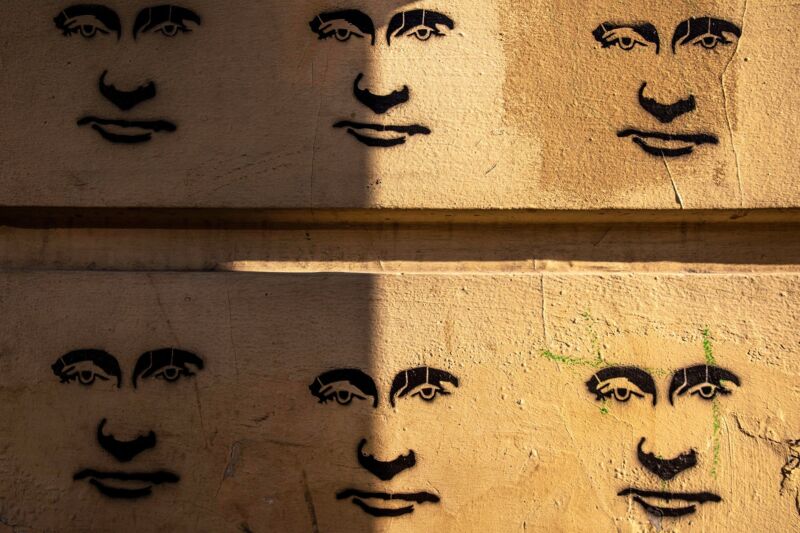
René has nothing to do with the invasion of Ukraine. The 34-year-old lives more than 1,000 km away in Nuremberg, Germany. He has no family there, and he’s never been to the country. But when Russia invaded, he wanted to help. So on the dating app Tinder, he changed his location to Moscow and started talking to women there about the war.
“I had a conversation with a girl who said [the invasion] is only a military operation and the Ukrainians are killing their own people and stuff like that, so I got into an argument with her,” says René, who asks not to share his surname because he doesn’t want his clients to know about his activism. “I also had some reactions like, ‘Thank you for telling us.’”

Since the Kremlin invaded Ukraine, Russians have existed behind a wall of propaganda that protects them from the details of what is happening on the ground. Russia’s state media calls the invasion a “special military operation,” never a war. Troops are pictured handing out aid, not blowing up buildings. According to official pollsters, the Kremlin’s narrative is sticking. Support for sending troops into Ukraine is high, lingering at around 70 percent. Although it’s unclear how reliable those numbers are, The New York Times reported anecdotal evidence that even Russians with Ukrainian relatives believe only military infrastructure is being targeted in “precision” strikes and that images showing violence against civilians are fake.
But an idea is gaining traction online: if Russians learn the truth about Ukraine, they might rise up and oust the war’s architect, President Vladimir Putin. In the past week, people have been testing that theory by sending messages to ordinary Russians through reviews on Tinder and Google Maps, and under state-sponsored posts on Facebook before the platform was blocked in Russia last week.
Reaching out to Russians siloed online was a tactic initiated by Ukrainian President Volodymyr Zelenskyy the night of February 23, when he posted a selfie video in Russian. “You are told this flame [war] will bring freedom to the Ukrainian people, but the people of Ukraine are already free,” he said. Then, early in the invasion, a volunteer army of hackers was drafted to Ukraine’s defense. But now even ordinary Internet users are finding a role in the war, using the social media platforms the Kremlin has not yet blocked. “Hello Russian people,” wrote one woman under a Facebook post by Russian news agency TASS last week. “Since the Kremlin influences all information, we from Germany want to inform you that a terrible war is going on in Ukraine provoked by Putin.”
“Reaching Russians within Russia is really, really hard for anyone because the Russian state maintains such tight control over their media environment,” says Laura Edelson, a computer scientist studying misinformation at New York University. She says the Russian state has been very effective at creating a shared set of beliefs: that the Ukrainian government is full of Nazis who are committing war atrocities. “What you want to do is chip away at that false narrative,” she says.
That is what René says he is trying to do on Tinder, one of the few social media platforms the West still shares with Russia. To kick off his Tinder campaign, he asked a Russian friend to translate some text urging people still living in the country to “speak out” against the war so he could use it as his profile picture on the app. After he shared the text he was using on Twitter, he noticed other people were also adopting the idea.
https://arstechnica.com/?p=1840403

